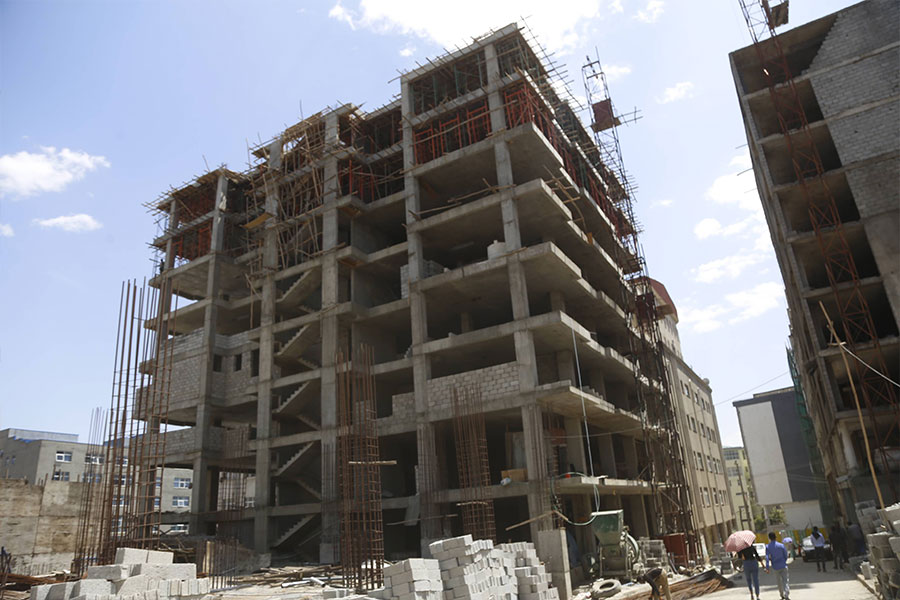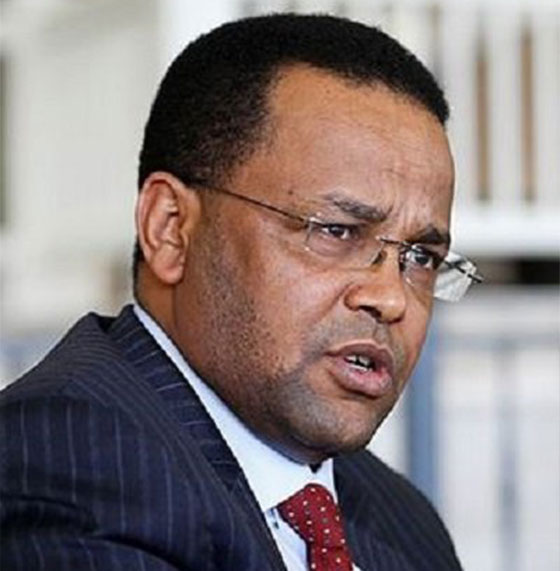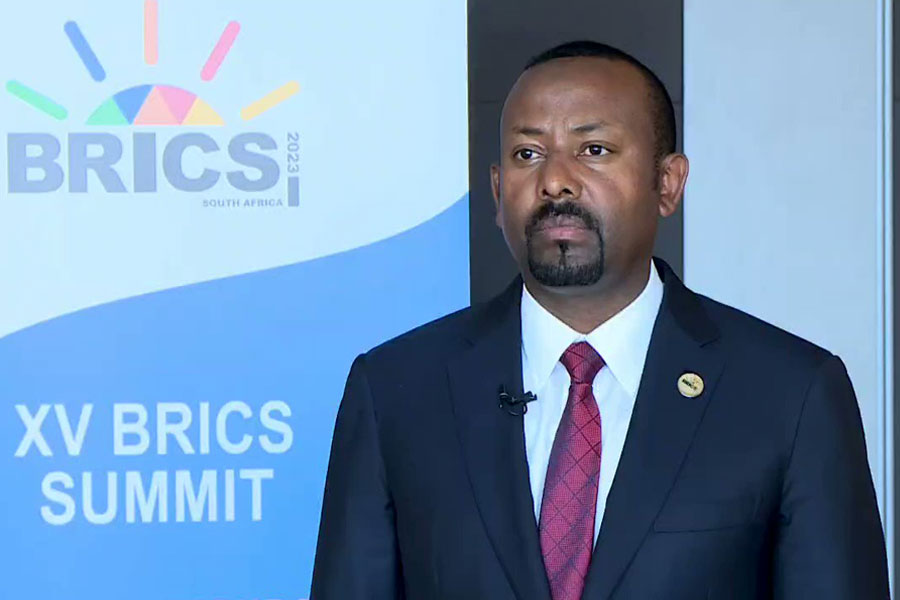
Commentaries | Jul 10,2020
Ethiopia's journey into the digital age faces challenges as a recent UN report ranked the country 169th out of 193 countries in the E-government Development Index.
Published last week, the survey categorized Ethiopia as low-to-middle. Key evaluation components include e-participation, reliability, accessibility, governance, literacy, and infrastructure. The survey also introduced e-government literacy as a new assessment area. Ethiopia's ranking improved by 10 positions, rising from 179th out of 193 countries in the 2022 assessment.
The report highlights Ethiopia’s progress, particularly in the development of the National Identity Program (Fayda), which aims to issue 90 million digital IDs within five years. Additionally, initiatives like the UNHCR and MasterCard project to verify refugees’ identities and ensure their access to entitlements, as well as the digital agriculture initiative, through the Digital Green project, which equips farmers with essential information to boost crop yields, have been recognised as positive progresses.
Of the 193 countries ranked worldwide, 65, primarily European nations, were rated higher. Most African countries were categorized as middle to low, highlighting a broader regional challenge. In the Online Service Index (OSI) and Government Development Index, nine African countries, including Ethiopia, Angola, Guinea, Lesotho, Sierra Leone, Congo, Togo, and Tanzania, were rated as middle.
Despite the improved rankings, Ethiopia's digital transformation journey faces significant challenges. Abiyot Sinamo (PhD), CEO of e-government and services at the Ministry of Innovation & Technology (MInT), highlighted the persistent gaps in digital infrastructure and literacy. He emphasized the substantial challenges that remain to be addressed. "The huge gap is recognizable", he said.
He noted that digital adoption has been uneven across cities and regions, with a gradual pace of progress. He criticized the cluttered digital infrastructure, pointing out that strategically located data centres are essential for broader reach. He emphasized the need for a new enterprise architecture to define the structure of infrastructure, aligning with business and inclusivity strategies.
Abiyot highlighted the regulatory frameworks introduced in recent years, including cybersecurity, e-transaction, and personal data protection proclamations, as well as the ongoing IT strategy. He emphasized the “substantial investments made in digital assets to facilitate ease of doing business.”
The Ministry has developed a five-year e-governance plan requiring a 40-million-dollar investment, prioritizing digital literacy, skills development, and legal frameworks. The strategy aims to enhance functionality, capacity, and finance, addressing critical challenges in data management, governance, and enterprise architecture within public services.
Despite significant digital advancements, Ethiopia continues to grapple with various challenges, including technical issues, workforce inefficiencies, and suboptimal digital and operational outcomes.
This comes amidst ambitious reforms under 'Digital Ethiopia 2025', championed by Prime Minister Abiy Ahmed (PhD), which aspires to build infrastructure that enables the creation of a digital ecosystem with increased interactions and integrated systems across several sectors including e-governance, e-commerce, and national identifications.
In a parliamentary session a few months ago, Abiy stated his wide ambitions to explore new technology lines, including artificial intelligence, smart manufacturing, robotics, and biomedical engineering. The viewpoint may define investments in enhancing technology infrastructure, kindergarten and preschool education, and renewable energy generation until 2050.
The UN report points to new megatrends including the rapid digitalization of services globally, the shift towards remote work, the integration of artificial intelligence (AI), the emphasis on digital identity and data management, and the increased use of data and emerging technologies for policymaking.
The survey explores the emerging role of artificial intelligence in public administration. Lin Junha, the UN’s Undersecretary General for Social and Economic Affairs who signed the report, emphasized the potential of AI to improve government operations but also cautioned about the risks of widening the digital divide. He highlighted the need for strategic investments and capacity-building to ensure equitable access and participation in the digital age.
The report suggests the need to strengthen local e-government for comprehensive digital transformation.
Several initiatives have been undertaken by the private sector to enhance Ethiopia's e-governance. A set of projects, spearheaded as part of the ease of doing business reform, with approximately 8 million dollars in funding, is an example. This project, undertaken by GIZ International Services and McKinsey & Company in cooperation with five federal agencies, including MInT, is part of a wider plan to improve the digital ecosystem and create a more favourable business climate.
Dubbed the ‘Business Environment and Investment Climate’, the project kicked off in 2021 and was set for until next year, overseen by a National Authorising Office and chaired by the Ministry of Finance.
The projects are hoped to enhance governance across all public services through electronic improvement. The projects include the completion of the E-consultation system, E-tax, development of the credit-rating system (CRS), upgrading E-trade system, and E-PPD (Public-private dialogue).
Alberto Gomez, team leader and private sector development expert at BEIC, stated the ubiquity of a web of tangles in the business landscape with bureaucratic hurdles from starting a business, tax payments, obtaining licenses, to access to finance. He further stated it is instrumental to curb such practices and boost the ease of doing business by introducing electronic alternatives. "We have taken major steps to enhance the e-governance structure of the country," he said.
He stated that Ethiopia's adoption of e-governance has been delayed compared to many other countries. He revealed that unlike many countries in Europe, where the private sector plays a leading role, Ethiopia's private sector has remained weak and not mature enough to lead in digitalisation, making the country lag behind in E-governance.
"Funding is also another issue for progress," he said.
Million Kibret, an investment consultant and general manager of BDO Consulting, acknowledges the shift toward e-governance as a promising strategy. However, he emphasizes the necessity for several comprehensive overhauls to improve the overall business environment.
He praised the outsourcing of services to the private sector while emphasizing the need for policy overhauls. He suggested that government agencies should promote transparency, predictability, and accountability to improve the business landscape, in addition to digitization efforts.
He emphasized the need to invest in power distribution lines to strengthen digital infrastructure. At the same time, he stressed the importance of implementing robust security prevention mechanisms to address the prevalent cyber-security threats and frauds. He also highlighted the need to improve digital literacy.
PUBLISHED ON
Sep 28,2024 [ VOL
25 , NO
1274]

Commentaries | Jul 10,2020

Radar | Mar 18,2023

Fortune News | May 02,2020

Fortune News | Oct 16,2021

Radar | Jan 07,2023

Radar | Jul 21,2024

Radar | Jul 18,2021

Radar | Mar 14,2020

Radar | Aug 26,2023

Fortune News | Nov 27,2022

Dec 22 , 2024 . By TIZITA SHEWAFERAW
Charged with transforming colossal state-owned enterprises into modern and competitiv...

Aug 18 , 2024 . By AKSAH ITALO
Although predictable Yonas Zerihun's job in the ride-hailing service is not immune to...

Jul 28 , 2024 . By TIZITA SHEWAFERAW
Unhabitual, perhaps too many, Samuel Gebreyohannes, 38, used to occasionally enjoy a couple of beers at breakfast. However, he recently swit...

Jul 13 , 2024 . By AKSAH ITALO
Investors who rely on tractors, trucks, and field vehicles for commuting, transporting commodities, and f...

Jun 28 , 2025
Meseret Damtie, the assertive auditor general, has never been shy about naming names...

Jun 21 , 2025
A well-worn adage says, “Budget is not destiny, but it is direction.” Examining t...

Jun 14 , 2025
Yet again, the Horn of Africa is bracing for trouble. A region already frayed by wars...

Jun 7 , 2025
Few promises shine brighter in Addis Abeba than the pledge of a roof for every family...